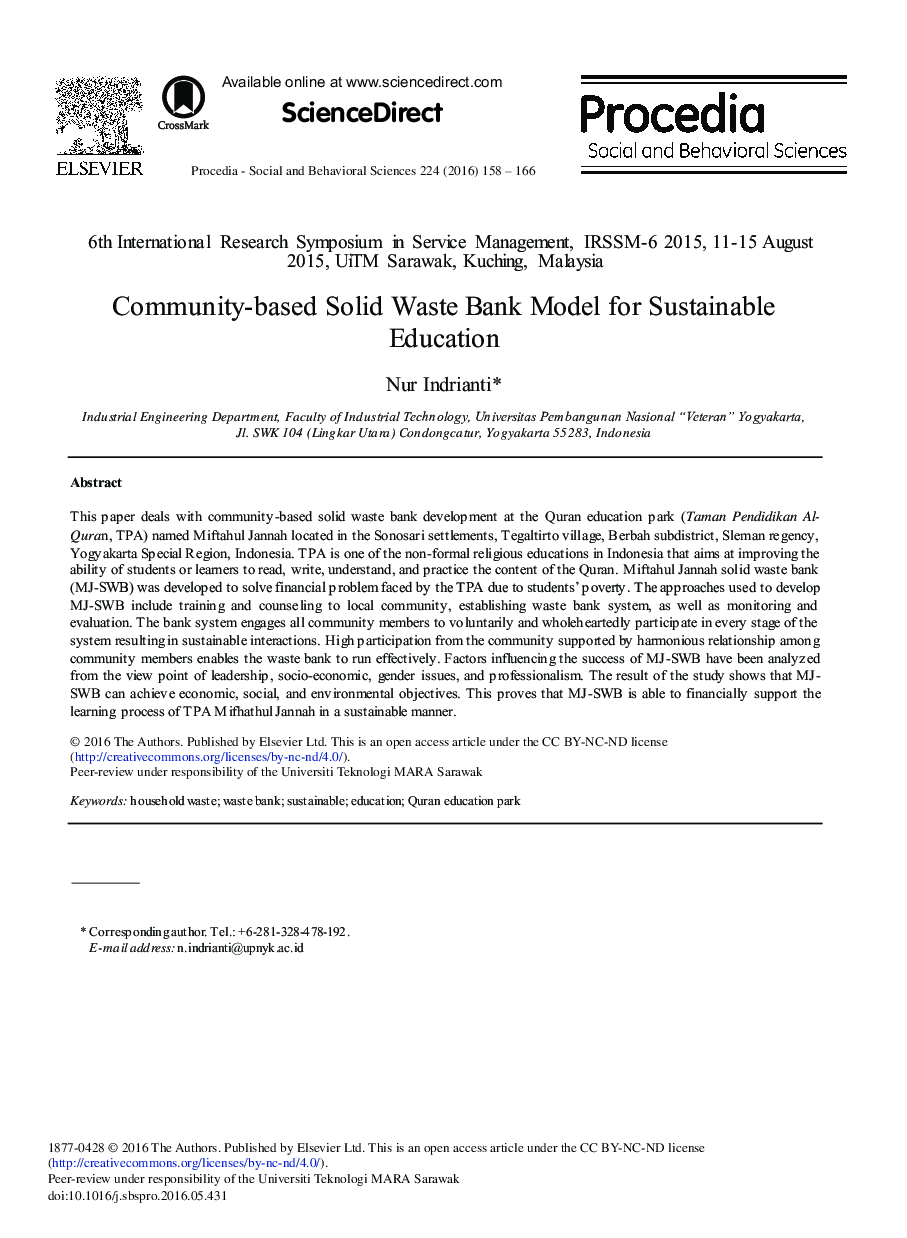| Article ID | Journal | Published Year | Pages | File Type |
|---|---|---|---|---|
| 1107397 | Procedia - Social and Behavioral Sciences | 2016 | 9 Pages |
This paper deals with community-based solid waste bank development at the Quran education park (Taman Pendidikan Al-Quran, TPA) named Miftahul Jannah located in the Sonosari settlements, Tegaltirto village, Berbah subdistrict, Sleman regency, Yogyakarta Special Region, Indonesia. TPA is one of the non-formal religious educations in Indonesia that aims at improving the ability of students or learners to read, write, understand, and practice the content of the Quran. Miftahul Jannah solid waste bank (MJ-SWB) was developed to solve financial problem faced by the TPA due to students’ poverty. The approaches used to develop MJ-SWB include training and counseling to local community, establishing waste bank system, as well as monitoring and evaluation. The bank system engages all community members to voluntarily and wholeheartedly participate in every stage of the system resulting in sustainable interactions. High participation from the community supported by harmonious relationship among community members enables the waste bank to run effectively. Factors influencing the success of MJ-SWB have been analyzed from the view point of leadership, socio-economic, gender issues, and professionalism. The result of the study shows that MJ-SWB can achieve economic, social, and environmental objectives. This proves that MJ-SWB is able to financially support the learning process of TPA Mifhathul Jannah in a sustainable manner.
